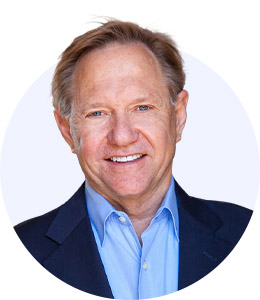Every organization invests in capital. Capital most often means things like building items, equipment, technology, etc. At budget time, a request goes out asking people what they see as their capital needs. Usually, more dollars are requested than are available. Then comes the process of prioritizing requests.
Why is capital investment so important? Having the needed equipment, technology, and workspace is essential to achieving a company’s goals. They are important in creating a good place to work and receive services. The key capital that makes the space, equipment, and technology work is people.
Healthcare Plus Solutions Group has produced the Human Capital Ecosystem™. Two of the key components of the Human Capital Ecosystem are how talent is selected and how people are developed. Attracting and keeping talent has never been more important and has never been more difficult. Let us start with selection.
I was meeting with a senior healthcare executive. He had requested a meeting due to his frustration with a member of the executive team. We have all been there. We are paying someone lots of money, and they make our lives miserable. He had a folder with lots of documentation of issues. The area this person oversaw had people leaving and people trying to leave. As the senior leader laid out the case and shared his frustration, the thought went through my mind, Why did you hire this person? I asked the question. The answer I got was one I have given: “I knew the person from conferences and liked them; they were well published.” (The person was a healthcare clinician, and the references seemed fine.) I asked what the person was being paid, added about 25 percent for benefits, and totaled up the number. I then asked the senior executive: “If you were spending that amount on a piece of technology, how much would you vet the choice and cost before making the purchase?”
He got it. Selection of talent is critical.
Are we using the available resources to help with these choices (knowing even when we do so there will be some misses)? Today, there are great tools available to help us learn more about a potential hire. These can range from using a variety of online tools to consulting an industrial psychologist. For years, I have utilized an industrial psychology company to help with selection of people who will be in a leadership role. While it’s not the only item in making the decision, it is so helpful. Knowing a person’s tendencies and thought process helps reduce the risk of making a hire who will not do well. It is valuable for knowing how best to help the person thrive. This is what I mean by a deeper vetting.
Let’s say a person earns an annual salary of $50,000 per year, not counting benefits or wage increases. Over five years, that is a quarter of a million dollars. If you were buying a piece of equipment for that amount, how much research would you do? Don’t underspend on selecting talent.
A second component in the Human Capital Ecosystem I’d like to discuss today is skill building. People tend to stay with a company when they are invested in through skill building and career development. At Healthcare Plus Solutions Group, we are helping organizations to develop talent. We call it Precision Leader Development™. This name was inspired by the fact that the future of healthcare is precision medicine. New diagnostic capabilities now mean a person’s genetics, molecular structure, and several other items are used so that each patient receives the treatment best for them. We see this approach working for talent development. From discovering how a person best learns to assessing their potential, role, and experience, we can determine what the best investment in them may be to help them achieve success.
In our work, we have seen that once this approach is explained, it clicks. At Cooperman Barnabas Medical Center in Livingston, New Jersey, Precision Leader Development is being implemented. Cooperman Barnabas always looks to be the best. As the group worked through the implementation of this individualized approach, the excitement was palpable in the room. One nurse leader shared that after such a tough time, this approach to investing in this precise way was energizing.
In skill building, there are times when group learning makes sense. However, when we can assess a person’s skill set, collaboratively design the best method for this person to enhance their skill set, and help create the time and resources to do so, it is the best investment a company can make.
People are the most vital resource we can invest in. As with any investment, we need to utilize the best process possible to make the investment the best, smartest, and most effective it can be.







